Do you have a chubby cat? Here’s how you can help it have a normal weight!
Chubby cats seem to conquer the virtual realm quickly because they’re cute, fluffy, and super silly. However, being chubby isn’t good for the well-being of the animal. The most common nutritional disorder in domestic cats is obesity, which usually means being 20% or more over normal weight. In many cases, this condition can be avoided with the help of the owner.
Obesity in cats isn’t always the result of overfeeding; like in humans, there are many contributing factors and causes. Before starting a weight loss program, it’s critical to determine whether obesity has any underlying medical causes.
Besides overfeeding, common causes of obesity in cats include spaying or neutering, genetics, stress, diabetes, hypothyroidism, and certain medications. In the following lines, with the help of vets, we will emphasize how you can help your chubby cat lose enough weight to be healthy and happy.
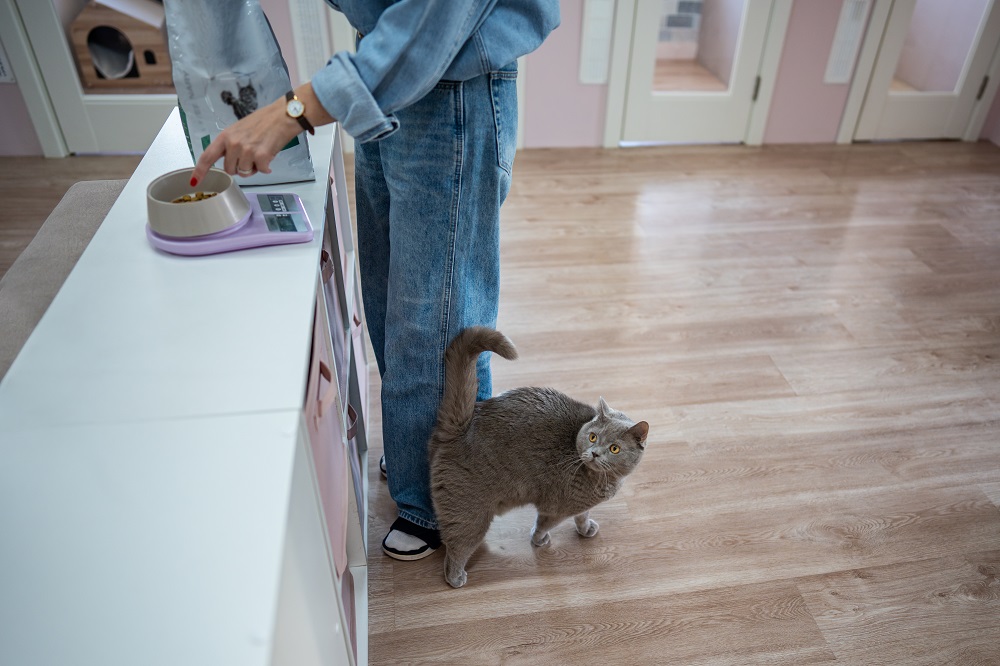
Ask your vet about the daily food allowance
The first and most common reason why a cat is chubby is because owners tend to spoil them and overfeed them. Using a cup or scales to measure their daily portions is an excellent place to start.
Make the gradual switch to scheduled feedings from free feeding, which involves leaving food out all the time. There is no way to keep track of how much each cat is eating when there is a bottomless bowl of food. Despite its initial convenience, it is a major contributor to obesity.
At first, it will be a bit difficult, especially if your cat is used to having all the food they want in the bowl. But start with baby steps; feed it with smaller and more frequent meals on a schedule. If you don’t know exactly the amount of food your chubby cat should eat, don’t hesitate to ask your vet!
In case you are a busy owner or a person who isn’t around the home for too many hours, you can try buying an automatic feeder that will dispense a predetermined quantity of food at predetermined intervals. On Amazon, there is a plethora of options available, depending on your budget, but I have chosen the least expensive one, the 3-liter IMIPAW Automatic Cat Feeder, which is available for $26.99.
Stop giving in to begging
Yes, this happens to a lot of cat owners, especially in the first two weeks of the dieting schedule. I mean, it’s hard to resist those big eyes and the sweet meowing. But you have to! Don’t give in, as long as you’re following the weight loss plan correctly, your cat has access to lots of fresh water, and there aren’t any underlying health problems.
Keep in mind that your ultimate goal is to improve your cat’s general health and quality of life, which means no more feeding stuff outside the feeding hours.
Always check if there are underlying medical issues
Before you embark on this weight loss journey with your chubby cat, it is crucial to determine if any medical conditions affect its tendency to obesity. It is critical to rule out, identify, and treat issues related to weight gain before reducing the amount of food portions per day.
Take a better look at the food you’re feeding your chubby cat
Cat food sold over the counter comes in a wide range of quality. Some are especially high in fat, while others may contain needless added sugars. Vets recommend buying your pet’s food from veterinary pharmacies, or if this isn’t possible, to read the labels carefully.
Compared to dry kibble, wet food has fewer calories, is higher in water, is easier for your cat to digest, and works best for many cats. As part of the program (and because most cats don’t drink water), most owners decide to feed a greater percentage of wet food rather than dry.
Additionally, pet stores sell over-the-counter weight-loss diets. These can be helpful in a small way, but they are not meant to have a miraculous effect, and the quantity you feed your cat still needs to be measured. If you don’t know what kind of food to buy for your chubby cat, ask your vet. They will be happy to help you out!
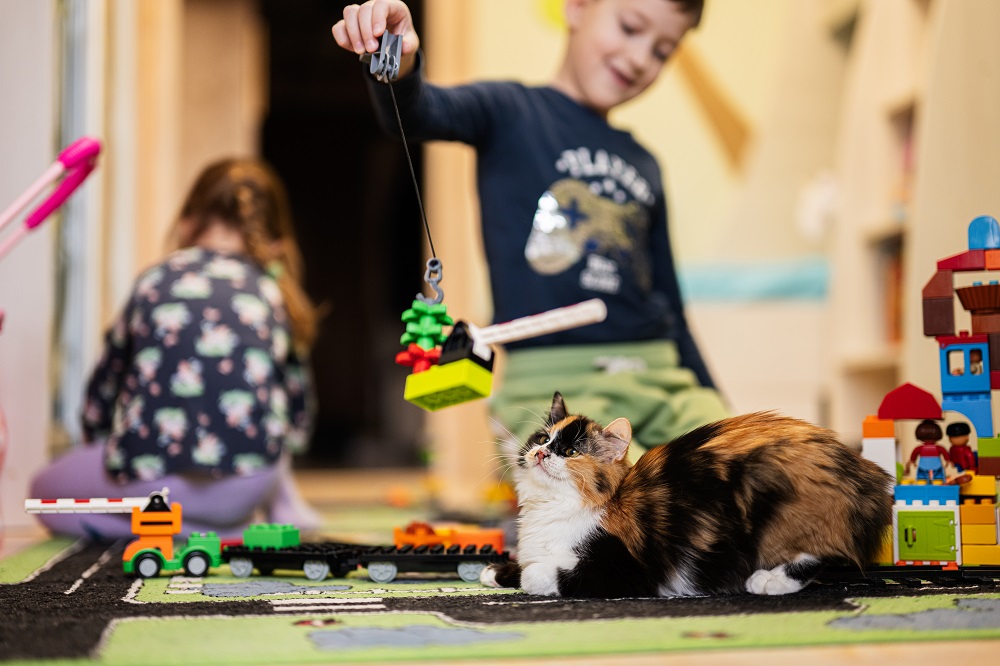
Try and play with it more than usual
Is your chubby cat eager to play? If the answer is yes, then you’re on the right path with dieting, but if you start describing your cat as lazy and lethargic, then you have to think about adding daily play sessions and exercise.
If you don’t live in a house with a backyard, or your cat isn’t a fan of the outdoors, buy a cat exercise wheel. Interactive play is a vital component of your cat’s development and enhances their quality of life by allowing them to exercise their prey drive. It’s also a great way to get your chubby cat moving.
During playtime, it is very important to allow your cat to “catch” their prey, the toy in this case. If not, they will become annoyed and either stop playing with you or react badly and scratch you due to her unmet desires.
Same as eating, you must try and schedule play sessions and exercise hours. It’s a good idea to always have multiple interactive toys on hand (to avoid your cat getting bored), some of which should be stored specifically for playtime.
Always listen to your vet
As owners, we tend to overlook if our pets get a little bit chubby than usual. Because we love them no matter what! However, at the yearly examinations, the vet might notice those extra pounds your cat gained. And if this happens they will suggest a weight loss goal for your cat with a unique prescription diet.
While you’re doing this, make sure you also track the progress your cat’s making, and in case there isn’t any, talk to your vet ASAP. It might sound unusual, but cats can hit “plateaus” as well! Cats experience plateaus just like people do, and it’s okay! Don’t freak out and ensure that everyone in the family stays faithful to the cat’s diet and that no one is “cheating” and giving in to extra portions of food.
This is why you should keep a written record of your food intake, including all of the treats you give it, as well as your exercise and monthly weight.
A healthy adult cat typically loses at least 0.5 pounds per month, and if you stick to the diet as prescribed, your cat should ideally shed almost a pound every month. While some cats may lose weight more quickly, others may need to go more slowly, but that’s due to age too.
Furthermore, make sure your chubby cat isn’t stressed or anxious about certain things. This will make the weight loss process heavier!
If you enjoyed this article, we’d love for you to hit that subscribe button so you can stay updated with more fun content in the future! Thanks for reading, and see you next time!
You may also be interested in reading this related article: Here’s How Hydrangeas Can Be Poisonous to Cats.




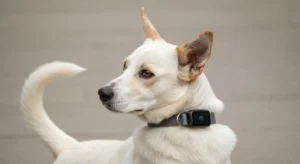
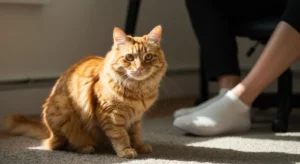
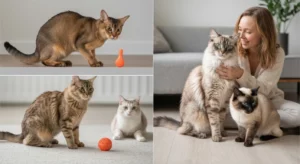

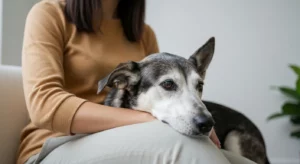
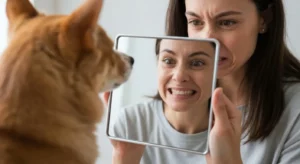
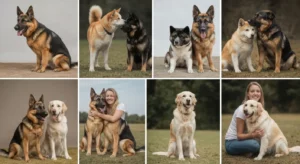
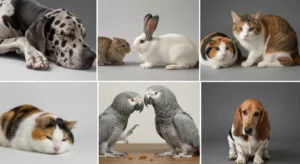
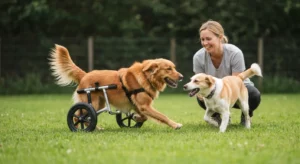
3 Responses